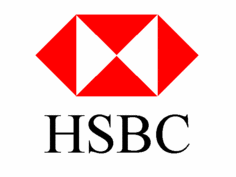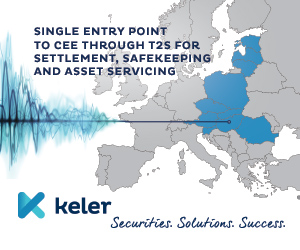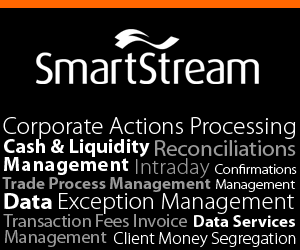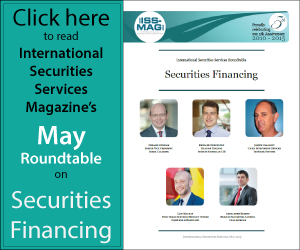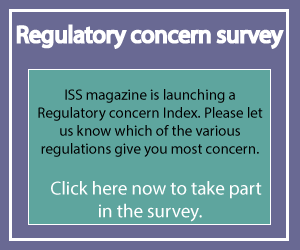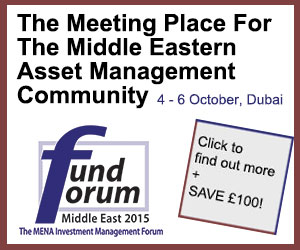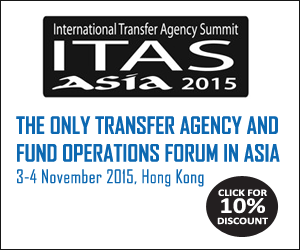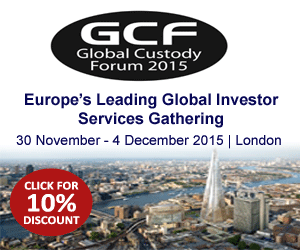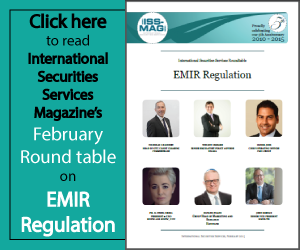Henning Varner, risk manager at Norway's Skagendone, a leading private partnership and fund manager, in conversation with ISS.
ISS: How would you describe your investment philosophy in your current role?
Henning Varner: We are a value/deep value investor having in earlier years had stellar results, however many value managers today are struggling with value traps and the success of growth management. My current role is to be risk manager of the company, analysing and presenting investment risks to the board and senior management.
ISS: How has it evolved over the years, if at all?
Henning Varner: Our investment philosophy has not changed; we require stocks to be underanalysed, unpopular and undervalued for us to consider investing.
ISS: Or is it set in stone?
Henning Varner: It is close to being set in stone as it is underpinned by our mission and values.
ISS: How do you feel about the threat of being caught up in a web of new regulatory activity as regulators turn their focus to investment managers?
Henning Varner: It will likely hurt our competitors more than ourselves due to our size, our good reputation and our culture of openness. Relatively speaking, it is not a threat in other words, but of course each new regulation that you haven’t already implemented in your own interest increases work flow and administration costs.
ISS: Do you agree with the proposition that asset managers need to be regulated more?
Henning Varner: Some obviously, but the value added, the quality of monitoring and the impact of each regulation should be the first thing the authorities have in mind when formulating new regulation.
ISS: What concerns you most in this respect?
Henning Varner: That controls just for the sake of controls could become even more widespread than they are today. A significant part of the millions of pages produced by financial industry companies in the USA and Europe are never read or processed sufficiently.
ISS: How might your business be affected?
Henning Varner: Negative on work flow, cost and mood.
ISS: Could your firm or any other asset managers you might work with be classed as too big to fail?
Henning Varner: Yes, at least “partly”.
ISS: If so, would that be a bad thing or a good thing?
Henning Varner: If it leads only to additional work and capital adequacy without a better understanding internally it could easily be a bad thing .It’s a good thing if it helps the institution avoiding losses from risks that previously were unknown. Many companies report good value added from the ICAAP (internal capital adequacy assessment process) in that management gets to understand and “feel” the risk factors their company is facing better than previously.
ISS: What might be its implications?
Henning Varner: That system critical institutions would need more capital than non-systemically critical institution, such as in Basel II where systemically critical banks are required to set aside more capital all else equal than a non-systemically critical bank.
ISS: Are traditional asset managers likely to be regulated?
Henning Varner: Yes, and as a starting point all same-category-asset managers would be regulated equally.
ISS: Or might it just be alternative asset managers of different kinds?
Henning Varner: No.
ISS: Hedge funds, private equity funds, real estate funds, commodity funds? Regulatory requirements are different for AIFs than UCITs and so on.
ISS: How strong is your commitment to alternative investments?
Henning Varner: About 0.5 percent of our total AUM is classified as AIFs. The remaining funds are UCITs.
ISS: The phrase 'responsible investment' features fairly prominently in everyday comment on the asset management industry. What does that phrase mean for you?
Henning Varner: That all investments conducted by the fund should meet the corresponding definition of “responsible”. Normally this is avoiding unethical companies using child labour, producing weapons and/or polluting heavily, but the definition might vary.
ISS: Does it refer to a refusal to invest in, for example, companies that produce tobacco products, alcohol, arms or are active in the gambling industry?
Henning Varner: It may.
ISS: If referring to tobacco etc., how does excluding in 'sin' companies sit with delivering superior outcomes for clients?
Henning Varner: It varies over time. In general you restrict your investment universe hence your ability to diversify and optimise along the efficient frontier. Performance in “responsible funds” is thus normally slightly lower than in similar funds not having this restrictive clause. However during the dot com bubble “green/environmentally” tilted funds did on the contrary outperform. This was mainly due to IT companies being categorised as “green” and not that companies with a dedicated specific green environmental business did well. When the IT bubble burst and the dot com phenomenon was over, performance was correspondingly worse.
We adhere to the UNPRI/PRI principles for responsible investment and have it included in our prospectuses that our funds will not invest in “irresponsible companies” – but our definition of these is partly proprietary and in general different from the definition of “responsible” used by other fund managers.
ISS: How would you say the industry has changed during your time in it?
Henning Varner: Many smaller asset managers have been eliminated since the financial crisis in 2007-2009. Stricter regulations, especially on derivatives and general disclosure, have been a sign of the times.
ISS: Is that for the better, or worse?
Henning Varner: It is somewhat better, however some of the regulatory requirements are burdensome to comply with compared to the intrinsic value-added by having such regulations.
ISS: Is it just technology that has changed?
Henning Varner: No.
ISS: The underlying investment universe?
Henning Varner: No, however clients are becoming more and more advanced and are using similar long-term view methodologies to those used by institutional investors when choosing asset managers.
ISS: Have investment management mindsets changed?
Henning Varner: In general no, but some newly recruited portfolio managers are much more positive to being open and using more advanced risk analysis and technology that was previously unavailable in the investment prosess.
ISS: How do you view the UK government's recent liberalisation of personal private pensions?
Henning Varner: It is a change we appreciate as it gives clients a wider choice and us fund managers potential new clients.
ISS: Do you see that as good or bad for the industry?
Henning Varner: I don’t think it will have any detrimental impact, but will be slightly positive.
ISS: Do you view it as a threat to your business in the UK or an opportunity for it if people decide to save more rather than splash out on new cars and holidays? Henning Varner: Opportunity.
ISS: Might some smaller companies struggle to remain viable?
Henning Varner: Yes, that might very well be true on an increasing scale. For example we have lost a net 25 percent of our assets under management. For smaller companies this could reduce funds to such a small size that soft fund closure would be the best way out.
Henning Varner is the risk manager of SKAGEN Funds in Norway, a leading private partnership and fund manager. Henning has a master degree in Mathematics and Economics from the University of Oslo and an MBA in management and leadership from the Norwegian School of Economics in Bergen. His working career started with 8 years in different risk and analysis roles in NBIM the world’s largest pension fund. After NBIM but prior to moving to Stavanger on the rainy, windy, Western coast of Norway in 2012, Henning spent six years as head of risk management in Eksportfinans in Oslo, a government agency lender supporting exporters. Marriage and three children means no time for interests like squash, cycling, skiing, watching soccer and meeting friends.


